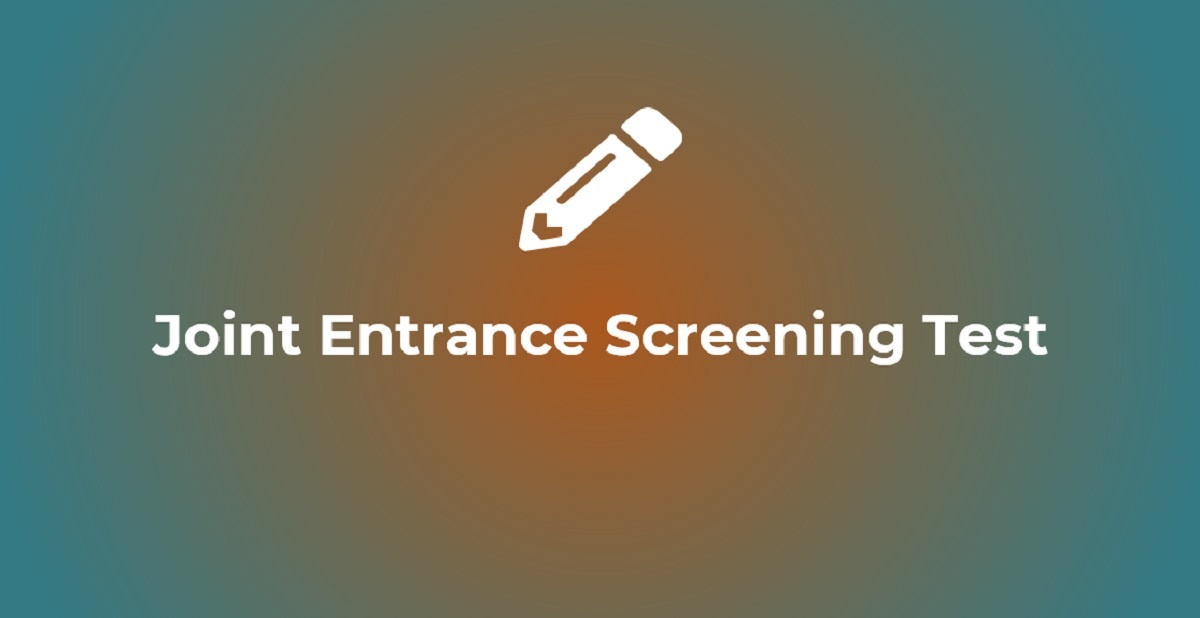JEST 2023: The Science & Engineering Research Board (SERB) conducts Joint Entrance Screening Test. JEST offers admission to Ph.D. and Integrated Ph.D. courses in Physics or Neuroscience, Theoretical Computer Science, and Computational Biology. The Joint Entrance Screening Test is considered a National Eligibility Test (NET). They can get admission to various institutions participating in this exam. It is a national-level exam. The various institutions participating in JEST will offer admission. Applying candidates can get complete information regarding JEST 2023 in this article.
JEST 2023 Updates
The Joint Entrance Screening Test Application process will be started in the 1st week of November 2022. Check Here: JEST Application Form.
JEST 2023 Dates
| Online application form | 2nd week of November 2022 |
| Last date to submit the application form | 4th week of December 2022 |
| Admit card Availability | 4th week of January 2023 |
| Exam date | 3rd week of February 2023 |
| Answer Key Release | 4th week of February 2023 |
| Last date to submit objection regarding answer key | 4th week of February 2023 |
| Declaration of result | 1st week of March 2023 |
| Interview starts | 1st week of April 2023 |
Eligibility Criteria
For Ph.D. in
- Physics: M.Sc. in Physics. Institutions accept M.Sc. /M.E./ B.E./B.Tech./ M.Tech in Applied Mathematics and Physics.
- Neuroscience at NBRC: M.Sc (Physics/Mathematics), B.E/B.Tech/MCA in Computer Science.
- Theoretical Computer Science at IMS: M.Sc./M.E./M.Tech in Computer Science or in a related area.A
- Computational Biology at IMSM:/M.E./M.Tech/MCA in any discipline.
Integrated Ph.D. in
- IISER, Thiruvananthapuram: B.Sc. (Physics) or B.E. /B. Tech. in any discipline.
- Theoretical Computer Science at IMSc: B.Tech. /M.C.A. B.Sc. /B.E. in Computer Science or a related stream.
Integrated M.Sc. / M.Tech-Ph.D
- Physics: B.Sc. (Physics/Mathematics).
- For B.E. / B.Tech in Electrical/ Instrumentation IIA, B.Sc. (Physics/Mathematics) / Engineering Physics/Electronics and Communications/ Computer Science & Engineering/Optics and Photonics.
- IISER-Pune, ICTS-TIFR, NCRA-TIFR, and TIFR-TCIS, B.Sc. (Physics).
- For NISER, B.E./B.Tech in Engineering (Physics) B.Sc. (Physics) or with 60% and above.
- At IIA: M.Sc. (Physics/Applied Physics)/Post-B.Sc. (Hons.) in Optics and Optoelectronics/Radio Physics & Electronics.
| Official Notification | Check Here |
Application Fee
- For SC/ST & female candidates, the application fee will be Rs.150.
- For the general category application fee will be Rs.300/.
- Through an online payment gateway, the application fee can be deposited.
- For female applicants belonging to SC/ST Application Fee is waived.
Exam pattern
- Through offline, mode the exam will be conducted (OMR).
- 3 hours will be provided to complete the exam.
- The question paper of Physics will be divided into three parts i.e. Part A, Part B, and Part C.
- The question paper will be published in the English language.
| Parts | No. of Questions | Marking Scheme | Negative Marking |
| Part A | 15 | +3 | -1 |
| Part B | 10 | +3 | No negative marking |
| Part C | 25 | +1 | -1/3 |
Syllabus
- Each offered program has a different syllabus for JEST. At graduation and post-graduation level, the authority will set the syllabus. From the official website, they can get the complete syllabus
- For Physics: The questions will be carried from topics such as Electromagnetism and Optics, Quantum Mechanics, Mathematical Methods, Classical Mechanics, Thermodynamics & Statistical Physics, and Electronics.
- For Theoretical Computer Science: Applicant can read topics such as Combinatory, Data Structures, and Algorithms, Graph Theory, Principles of Programming, Discrete Mathematics, Analytical Reasoning and Deduction.
Participating Institute
| Sno | Participating Institutes |
| 1. | ARIES( Aryabhatta Research Institute of Observational Sciences, Nainital) |
| 2. | HBNI(Homi Bhabha National Institute, Mumbai) |
| 3. | HRI(Harish Chandra Research Institute, Allahabad) |
| 4. | ICTS(International Centre for Theoretical Science )Bangalore |
| 5. | IGCAR(Indira Gandhi Centre for Atomic Research, Kalapakkam) |
| 6. | IIA(Indian Institute of Astrophysics, |
| 7. | IISc Bangalore |
| 8. | IISER Kolkata |
| 9. | IISER Pune |
| 10. | IISER Mohali |
| 11. | IISER Thiruvananthapuram |
| 12. | IMSc (The Institute of Mathematical Sciences, Chennai) |
| 13. | Institute of Physics, Bhubaneswar |
| 14. | IPR(Institute for Plasma Research, Gandhinagar) |
| 15. | IIA (Indian Institute of Astrophysics) |
| 16. | IUCAA(Inter-University Centre for Astronomy and Astrophysics) |
| 17. | NBRC(National Botanical Research Institute, Manesar) |
| 18. | JNCASR, Bangalore |
| 19. | PRL(Physical Research Laboratory, Ahmedabad |
| 20. | RRCAT(Raja Raman Centre for Advanced Technology, Indore |
| 21. | RRI (Raman Research Institute, Bangalore). |
| 22. | SINP(Saha Institute of Nuclear Physics) |
| 23. | VECC(Variable Energy Cyclotron Centre), Kolkata |
| 24. | TIFR(Tata Institute of Fundamental Research, Mumbai) |

